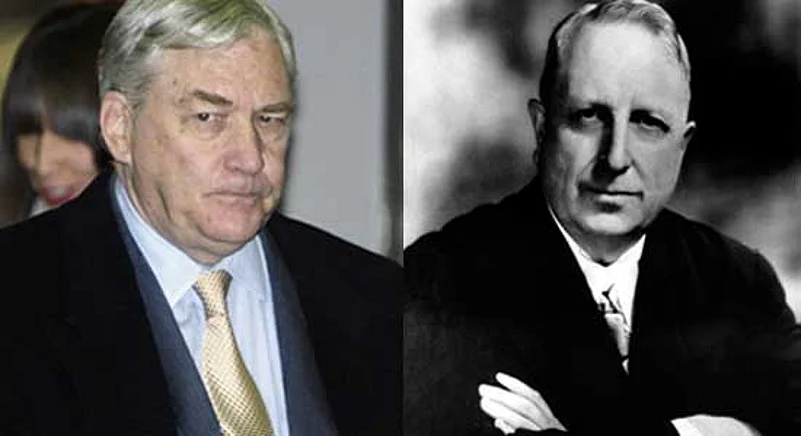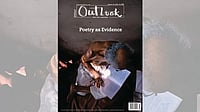Owning a newspaper has been an ego-trip for 400 years. India’s owners might not win, but they’d certainly be starters in any final of a World’s Most Wondersome Owners race.
Ramakrishna Dalmia, the first Indian owner of the Times of India, would start among the favourites. One of his editors, K.N. Sahni, described a first encounter: “I found myself in a bare spacious room, in the centre of which, around a white mattress, four half-naked men were engaged in some kind of struggle around something which had neither shape nor form. It was Seth Dalmia in the semi-nude. The bare-bodied foursome were giving him his daily massage. His oily body smelt like that of a skunk. His mouth emitted a terrible odour, a mixture of ammonia and dry hides. In the days to come, I rarely sought proximity.”'

Conrad Black and William Hearst
Another editor, Pothan Joseph, concluded that Dalmia “measured human progress in terms of the status society accorded—and the column inches his flagship provided—to the cow.” Dalmia ended up in jail, a long-standing occupational hazard for newspaper owners. For instance, John Wilkes, the British rabble-rouser and establisher of free-press principles in the 18th century, did time for insulting King George III, and Conrad Black, the pompous Canadian former newspaper owner (UK, Australia, US, Israel) who took a British title, recently spent two years in prison in Florida on various fraud charges.
Samir Jain, genius of today’s Times of India dominance, caught the fancy of British author Nicholas Coleridge: “Of all the newspaper owners in the world, I met no one so single-mindedly wedded to marketing as Samir Jain. He reminded me of one of those maharajahs who visited the industrialised West and returned fired with innovations to impose on their sleepy subjects.” Coleridge quotes Jain as telling his executives that with effective marketing, the ancient Egyptians could have achieved the innovations of 2000 years in a mere 200 “or 20 years had the ancient Egyptians been Japanese”.
But William Hearst has to rank as top of the all-time pops for grandiose proprietors. Locked in a circulation war with Joseph Pulitzer in New York in the 1890s, Hearst sent the most famous war reporter and war illustrator of the day (this was before photographs in daily newspapers) to Cuba to report on an insurgency against the Spanish that looked like leading to a circulation-boosting war. The correspondent wired back: “There is no trouble here. There will be no war. Wish to return.” Hearst is supposed to have replied: “Please remain. You furnish the pictures and I’ll furnish the war.” You can’t fault American journalist A.J. Liebling, who gets credit for saying, “Freedom of the press is guaranteed only to those who own one.”


























